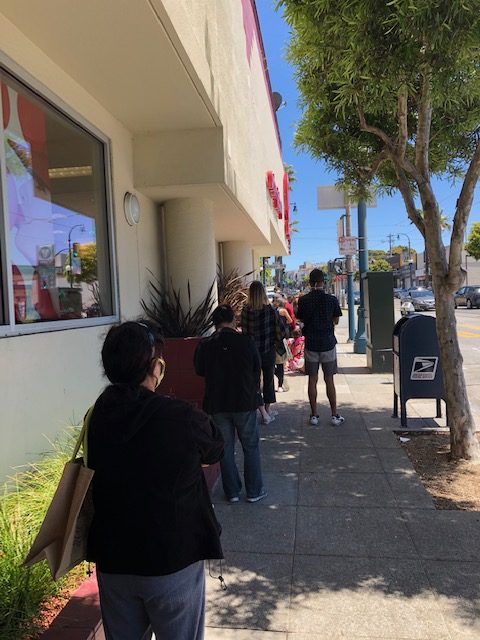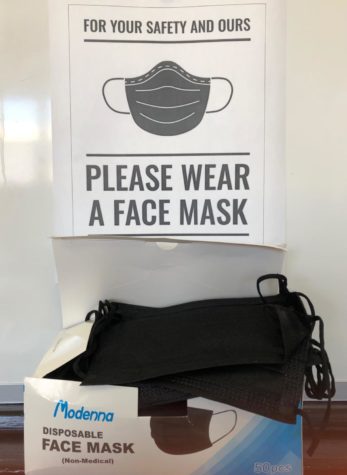Essential businesses stay strong despite declining economy
A lengthy line forms outside the Target on Ocean Ave in San Francisco.
May 24, 2020
Almost everyone has been issued a shelter-in-place order and everybody is practicing social-distancing. Some people are enjoying quarantine and being able to work from home, but not everyone is so fortunate.
Many businesses, small and large, have been shut down in an effort to slow the spread of the coronavirus. The only exceptions to this mass closure are essential businesses. Businesses that fall under this category are supermarkets, hospitals, pharmacies, banks, garbage collection, gas stations, and other necessary services.
While some counties have begun to loosen the reins on certain closures, most non-essential businesses are still closed. Examples of non-essential businesses are restaurants, hair salons, movie theaters, bars, amusement parks, and anything that requires large crowds such as concerts or sporting events.
Aidan Horgan ’20 said, “Sports without the fans just aren’t the same. They don’t have the same impact they would have if there were thousands of fans roaring in the stands. It’s all ruined.”
For the employees of facilities under the non-essential category, they have two options. The first is to work from home and attend online meetings. If the job is unable to be completed in a home environment, they must take the second option and apply for unemployment.
After registering for unemployment, California will pay a maximum of $450 per week since each state has its own maximum payout. Since the coronavirus has forced more than 26 million people to lose their jobs, the Trump administration has passed the stimulus bill which temporarily increases the maximum payout of all 50 states by $600.
A second stimulus bill has been approved by the House and it now must be passed in the Senate. The current stimulus bill also loans money to mainly small businesses in an effort to keep their employees paid so that they can be ready to open once the shelter-in-place order is lifted.
When these quarantine orders will be lifted remains to be seen.










